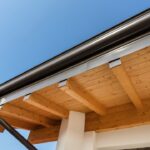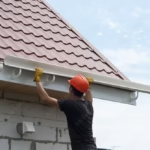Understanding the Challenges of Pigeon Infestation
Pigeons have long coexisted with humans, often finding urban environments conducive to their survival. However, their presence can become a nuisance, particularly when they decide to turn your roof into their personal perch. Understanding how to keep pigeons off roof is crucial not only to maintain the aesthetic appeal of your home but also to prevent potential property damage and health risks.
These birds are resourceful and tenacious, which can make keeping them away a challenging task. But fear not, with the right pigeon prevention strategies, it’s possible to deter them effectively. In this guide, we will explore approved techniques and technologies that will assist you in keeping your roof pigeon-free.

Why Pigeons Are Attracted to Roofs
Pigeons often find roofs appealing due to their high vantage points. They provide safety from ground predators and an excellent spot for early detection of food sources. Moreover, rooftops often feature small crevices which can serve as an ideal nesting spot. To learn more about different roofing materials and why pigeons might prefer them, consider reading this roofing materials guide.
The Impact of Pigeons on Roofs
If left unchecked, pigeon droppings can lead to various issues, such as roof damage and gutters clogging. The acidic nature of their droppings can erode roofing materials over time, leading to leaks and potentially expensive repairs.
Strategies to Deter Pigeons from Your Roof
Physical Barriers and Deterrents
One of the most effective ways to prevent pigeons from settling on your roof is to implement physical barriers. These can include spike strips, netting, and wire meshes. Such barriers provide a physical restraint, making it uncomfortable for pigeons to land and nest. For a deeper dive into solutions for rooftops, explore this new roof cost guide.
Use of Reflective Surfaces
Shiny objects such as old CDs, aluminum foil, or reflective tape can be used to deter pigeons. These surfaces reflect sunlight, creating an uncomfortable and disorienting environment for the birds.
Sound as a Deterrent
Installing sound deterrents that emit high-frequency sounds can be effective. These devices produce sounds that are disturbing to pigeons but largely inaudible to humans.
Natural Deterrents and Humane Options
Bird Gel and Spices
Bird gels can make surfaces sticky and unpleasant for pigeons to land on. Spices such as ginger or cayenne pepper can also be sprinkled on rooftops as natural deterrents. These spices irritate the pigeons senses, encouraging them to find more hospitable environments.
Introducing Predators
Owls, hawks, or falcons are natural predators of pigeons. Installing decoys or playing recorded predator noises might scare the pigeons away.
Technology-Based Solutions
Motion-Activated Sprinklers
These devices can effectively deter pigeons by surprising them with a jet of water whenever they approach the roof. The sudden movement and spray not only scare the birds but also condition them to avoid the area.
Ultrasonic Bird Repellers
Utilizing advanced technology, ultrasonic bird repellers emit sounds undetectable to humans but irritating to pigeons and other avian species. This method can keep large areas, including roofs, free from pigeon presence.
Maintaining a Pigeon-Free Environment
Regular Roof Maintenance
Ensuring that your roof is free from debris and any potential food sources can significantly reduce pigeon attraction. Regular inspections and clean-ups will keep the roof less appealing to these birds.
Community Awareness and Action
Neighboring homes experiencing similar issues can work together. Implementing a community-wide bird control program can amplify individual efforts, ensuring a broader pigeon-free zone.
Legal and Ethical Considerations
Understanding Local Regulations
Before implementing any control measures, it’s essential to understand local wildlife regulations as some pigeon control methods might be restricted. Consulting with local authorities can provide guidance on approved practices.
Ethical Manifesto
While dealing with pests, maintaining ethical standards is crucial. Humane methods ensuring the well-being and minimal distress to pigeons are preferable.
Conclusion: A Harmonious Solution
While pigeons can be problematic, they are also living creatures. Finding harmonious solutions that respect both human needs and animal welfare is possible. By employing a combination of the methods outlined above, homeowners can maintain a pigeon-free roof effectively.

For Homeowners
With these shared insights, you are now equipped to take proactive measures to protect your home. For more detailed insights on choosing the right roofing materials that deter pigeons, see this comprehensive guide on TPO roofing.
FAQ
Do Pigeon Spikes Hurt the Birds?
No, pigeon spikes are designed to make landing uncomfortable for pigeons without causing them any harm.
Can I Use Spices on My Roof Safely?
Yes, non-corrosive spices like cayenne pepper can be used safely, provided they don’t damage roofing materials or wash into areas where they could cause irritation to humans or pets.
Are There Specific Regulations About Deterring Pigeons?
Local regulations may apply. It’s advisable to consult local wildlife authorities to ensure compliance with applicable rules and regulations.
This article contains affiliate links. We may earn a commission at no extra cost to you.








